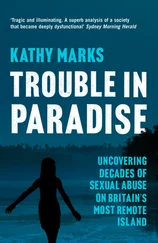A campaign demanding that young people show more respect to their elders and betters saw the Labour leader refer to what he saw as a pre-war golden age. ‘My father, growing up,’ Mr Blair said, ‘didn’t have as much money as we have, he didn’t have the same opportunities, he didn’t have travel or communications, but people behaved more respectfully to one another and people are trying to get back to that and most people want it.’
At around the same time, a UNICEF report found that Britain’s young people were the unhappiest in any of the world’s rich nations. One of the authors blamed the UK’s ‘dog-eat-dog’ society. The Archbishop of Canterbury described a nation gripped by panic, ‘tone-deaf to the real requirements of children’.
The last few years have seen much hand-wringing as to how Britain has allowed the relationship between adult and adolescent to become so dysfunctional. In 2009 an independent inquiry panel made up of academics and child experts published a ‘Good Childhood’ report arguing for a significant change of heart in our society. It railed against the unkindness shown towards teenagers and of the need for ‘a more caring ethic and for less aggression, a society more based upon the law of love’.
In government, David Cameron dismantled some of the legal architecture around antisocial behaviour in the hope that communities might re-engage with their young people, but I don’t think it fanciful to suggest that generational segregation in Britain may actually have become a greater risk to the fabric of our nation than segregation by race, religion or class. A recent Whitehall report warned ministers that inter-generational prejudice and discrimination could become ‘more directly hostile’. The little old lady shuffling to pick up her pension at the post office is intimidated by the group of youths ‘hanging around’ because she doesn’t know any of them. Her grandchildren live miles away and the sinister teenagers in their caps and hooded tops look just like the ‘gangs of yobs’ her newspaper has been warning about.
I went to Burnley in Lancashire a few years ago to talk to the groups of young men loitering in barren shopping arcades. What emerged was a story of teenagers and adults living separate lives.
At a youth club where he does voluntary work, I asked 17-year-old Steven Jones how much time he spent with his parents. ‘None,’ he replied with a shrug. In the evening, he was out with his mates, returning home after his parents had gone to bed. And in the morning? ‘No, because I just get up and go out.’
British teenagers spend more time hanging around with their mates than almost anywhere else in Europe. A survey of 15-year-old boys found that in France and Switzerland just one in six said they spent most evenings out with their peers. In Italy and Germany it was roughly one in four. In England and Scotland it was about one in two. Perhaps it should not be a surprise that the teenage pregnancy rate is so high here. British adolescents often don’t seem welcome in their own homes. While one in ten Italian and French teenagers said they rarely had a meal with their parents, in the UK the figure was one in three.
I would understand all of this more if British youth were going through a particularly defiant and unruly phase. But a recent government-commissioned report found that standards of behaviour in English secondary schools were at their highest level for thirty years; teenagers apparently do more charity work than any other age group — ten times more likely to volunteer in their community than behave antisocially; the chance of being a victim of youth crime is put at its lowest level since records began in the early eighties. Where are the modern-day equivalents of rebellious Mods or Hippies or Punks? In their bedroom, apparently, revising for the Biology exam.
On a British question and answer site on the Internet, 13-year-old Ellen asked: ‘Why do people hate teenagers…?’ When you’re twelve everyone likes you but then the minute you turn thirteen everyone hates you. I want people to like me, I’m nice!’ Below, Bethanne answered: ‘This is because ages ago teens were smoking and vandalising things (i.e. in the 1990s perhaps) and it has just carried on through the years. I couldn’t care less if the occasional ignorant adult hated me: their loss.  ’
’
It is ‘their loss’. Britain has looked for someone to blame for the breakdown in its community life and, frightened to look in the mirror, has consistently pointed its accusatory finger at ‘youth’. It should not be a surprise that sometimes ‘youth’ hits back.
As the young man’s swinging foot connected with my leg, I winced. He had hurt me. But not nearly as much as our society hurts some of its children.
And so to bed, as Pepys would have put it. My alphabet concludes with the soft hypnotic hum of sleep — the song of the winged god Hypnos, its notation a string of zeds.
The British have a paradoxical and troubled relationship with sleep. We spend probably twenty-five years in the Land of Nod, a third of our lives, and yet we are suspicious of the territory, anxious that others might think us indulgent for spending too long strolling its quiet bye-ways, afraid to admit we fancy a snooze. The work ethic of our Protestant heritage associates sleep with sloth.
Simultaneously, we fret that we don’t get enough. A survey by pollsters MORI recently found that four out of ten Brits thought they suffered from too little rest, a figure that rose to more than half of those aged between thirty-five and forty-four. The results pointed to a frenzied subset of British society, desperately trying to keep functioning amid fears they were suffering severe sleep deprivation. The kind of person most likely to be trapped by this sleep paradox, it turns out, is a female executive juggling family life with a full-time career in London: ‘superwoman’, it appears, is constantly knackered.
Other nationalities and cultures don’t share our hang-up about sleep. The Spanish siesta , the German mittagspause , the Chinese wujiao , the Indian bhat-ghum — rest has a revered place within the daily routine of millions. Often it is about avoiding the hottest part of the day, but by embracing and celebrating slumber, sleep loses its association with idleness or indolence. For the British, however, there is shame in being caught napping.
The association between sleep and sloth was cemented in the furnace of nineteenth-century industrial expansion. The Scottish surgeon and philosopher Robert Macnish noted in his book of 1830, The Philosophy of Sleep , how ‘the sluggard wastes the most beautiful period of life in pernicious slumber.’ He identified a class divide, contrasting the ‘rich, lazy and gormandizing citizen who will sleep twelve or thirteen hours at a time’ with ‘the hard-working peasant’ who was content with seven or eight.
Macnish’s Protestant Glasgow upbringing infused his passionate patronage of the early riser. ‘The husbandman is up at his labour, the forest leaves sparkle with drops of crystal dew, the flowers raise their rejoicing heads towards the sun, the birds pour forth their anthems of gladness; and the wide face of creation itself seems as if awakened and refreshed from a mighty slumber.’
Compare that with his description of the sluggard:
He yawns, stretches himself, and stalks into the breakfast parlour, to partake in solitude, and without appetite, of his unrefreshing meal — while his eyes are red and gummy, his beard unshorn, his face unwashed, and his clothes disorderly, and ill put on. Uncleanliness and sluggishness generally go hand in hand; for the obtuseness of mind which disposes a man to waste the most precious hours of existence in debasing sleep, will naturally make him neglect his person.
Читать дальше

 ’
’










